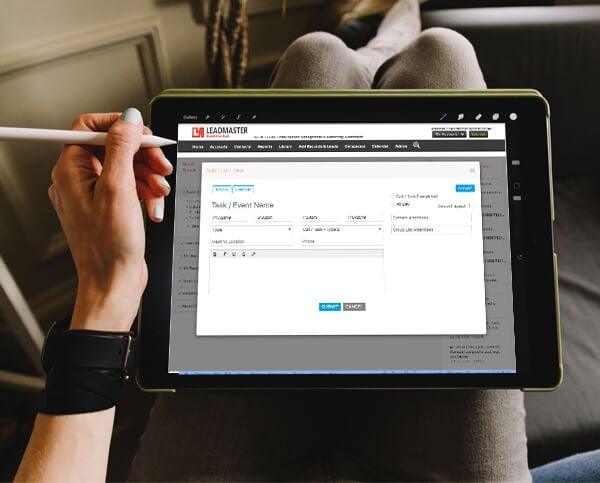
If you’re new to running a small business, it can be easy to get bogged down by all of the acronyms thrown around in the business world. However, it’s important to understand what these different terms mean and how they pertain to your business’s growth and development.
Two common terms people often confuse are customer relationship management (CRM) and enterprise resource planning (ERP). Understanding the differences between CRM and ERP is the first step to making the most out of these features for your business.
What Is CRM?
Customer relationship management is the process of managing and maintaining a business’s relationships with its customers and potential clients. CRM software is specially designed to consolidate customer data and automate many aspects of customer research. It takes customer data collected from email, social media, website analytics, calls and other means of gathering customer information. Then, it can organize the data into an easy-to-use resource for business owners to get to know customers and their purchasing habits.
CRM’s main purpose is to help businesses better understand and serve their customers in a short amount of time. Business owners and employees are then free to focus on other tasks that can’t be automated, which makes CRM software an essential asset to businesses of any size.
What Is ERP?
While CRM concentrates on customers, enterprise resource planning focuses primarily on the business itself. Your business can use ERP software in many ways, but its main role is to help companies to run smoothly by integrating multiple processes into one system.
ERP still allows different departments within a company to use their own programs. However, workers can access and monitor all of these programs through a single interface. Departments can then communicate more efficiently with one another as well, which streamlines business processes and saves time.
Implementing an ERP system requires strategic thinking on the part of the organization. While ERP systems offer many benefits, you must implement them correctly to improve your organization’s processes. If you’re considering purchasing an ERP system for your company, you need to ensure that the ERP in question is compatible with your current systems and technologies.
CRM vs ERP: Which One Do You Need for Your Business?
If your main goal is to understand and grow your customer base, improve customer service or find a more efficient way to organize customer data, it may be time to invest in CRM. If you’re a larger company that needs to increase the efficiency of interdepartmental communication, better organize department processes and resources or increase productivity, you might instead benefit from the right ERP system.
Both CRM and ERP are designed to improve business processes and increase profit. However, CRM is a customer- and sales-focused system that aids in a business’s front-facing operations, while ERP optimizes a business internally by providing a central interface for communication and process management. If you’re not sure which type of system would better suit your business, LeadMaster is here to help.
We understand you’re looking for the ideal system to fit your needs, which is why we offer a free 30-day trial for all our CRM and lead management services. Contact us to learn more about the best system for you, or sign up for your free trial today.

Recent Comments